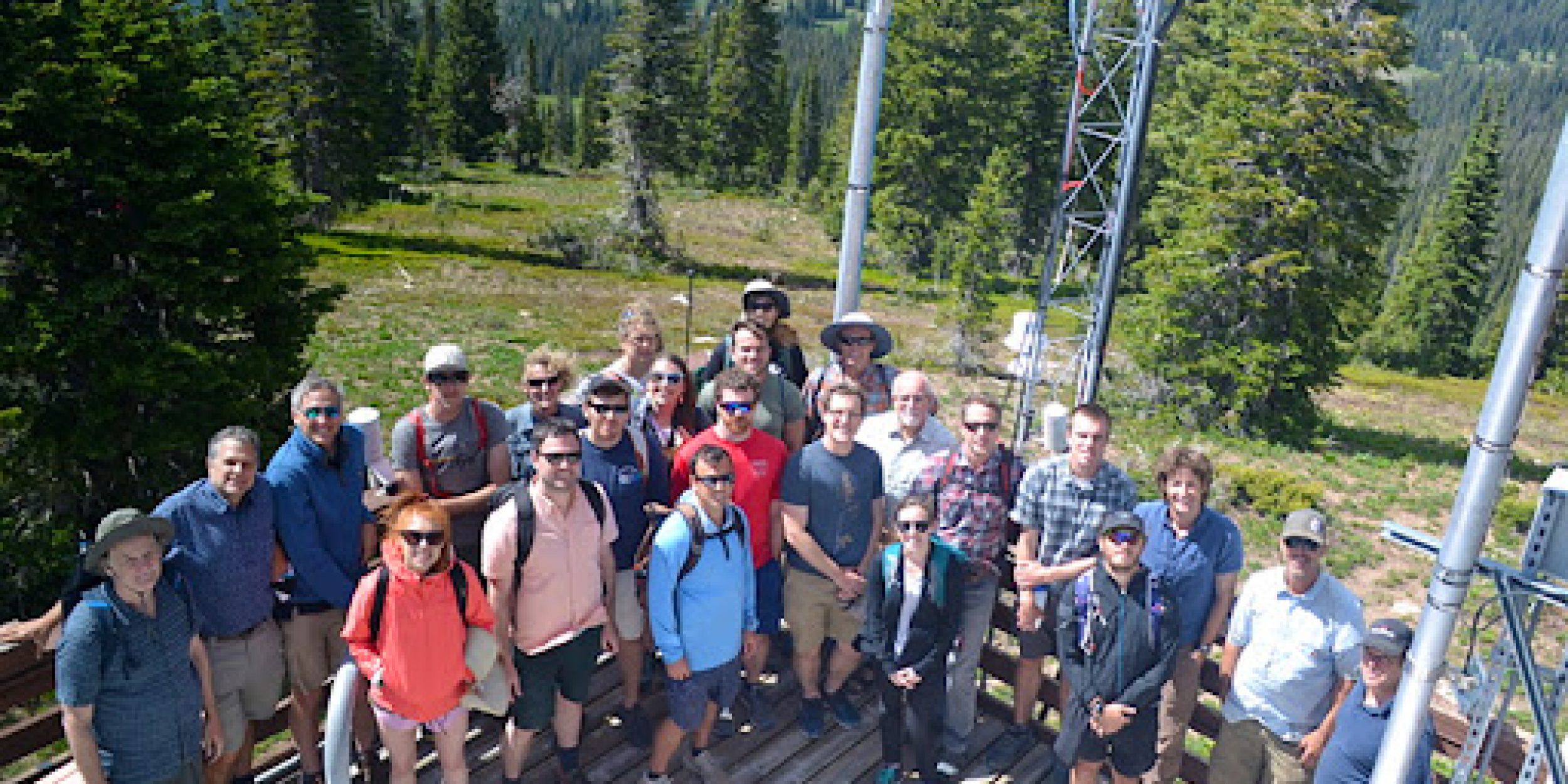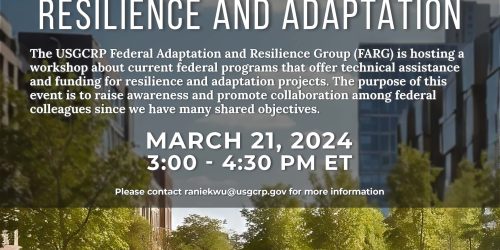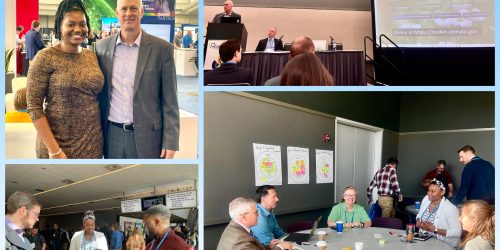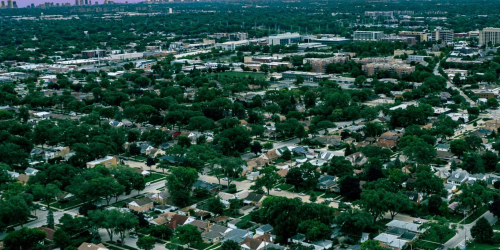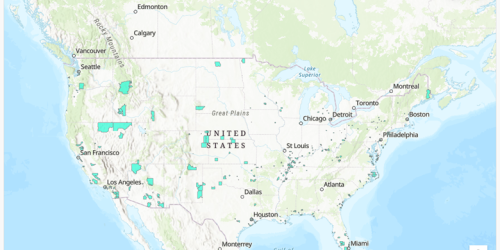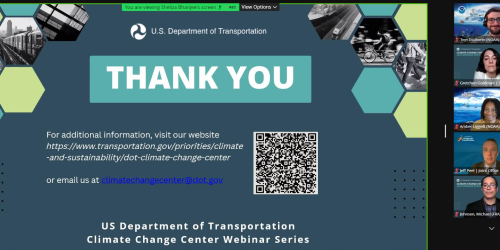

Eight new postdoctoral fellows are commencing cutting-edge research projects that will contribute innovative climate science to the research community as well as NOAA’s mission.
These fellows are the new 2022-2024 class of NOAA Climate and Global Change (C&GC) Postdoctoral Fellows, supported by NOAA Climate Program Office (CPO) and selected by the University Corporation for Atmospheric Research (UCAR).
“Since 1991, the NOAA Climate and Global Change Postdoctoral Program has been cultivating the next generation of climate and global change experts,” said Wayne Higgins, Director of NOAA’s Climate Program Office. “With this year’s class of eight talented fellows, the Program has now sponsored more than 250 fellows who are collectively helping to build a diverse community of experts in climate and global change research.”
Chosen from 86 applications through a competitive review process, the fellows are promising early career scientists who are within five years of completing their PhDs. Over the next two years, the eight fellows will be hosted by mentoring scientists at universities and research institutions around the country to conduct projects focused on observing, understanding, modeling, and predicting climate variability and change.
“The C&GC fellowship provides early career scientists a unique opportunity to pursue cutting edge climate research questions at their institution of choice, while building a network that spans disciplines and geographies with current fellows, former alumni, and NOAA Research,” said Ginny Selz, the NOAA C&GC Postdoc Fellowship Program Federal Liaison and CPO Climate Observations and Monitoring Program Manager.


Sponsored by CPO and managed by UCAR’s Cooperative Programs for the Advancement of Earth System Science (CPAESS), the NOAA C&GC Postdoc Fellowship Program helps create and train the future leading researchers needed for climate studies. “UCAR | CPAESS is honored to manage the prestigious and critical NOAA Climate and Global Change fellowship. Great effort goes into creating a nurturing bridge between their academic work and that of a career scientist with extensive networking and career development opportunities.” said Hanne Mauriello, Director of UCAR’s CPAESS.
The Program was originally founded in 1990 by former CPO Director, Dr. J. Michael Hall, in response to the lack of trained climate scientists to analyze the massive quantity of data collected by the international Tropical Ocean Global Atmosphere Program (TOGA), which ran from 1985 to 1994. Over the past 30 years, the Program has developed an outstanding reputation of attracting the best and brightest PhDs in the climate sciences.
The Program traditionally supports two forums where fellows can engage with NOAA and each other— a NOAA Summer Institute every other July, as well as an annual alumni luncheon at the American Geophysical Union (AGU) Fall Meeting in December. The global pandemic, however, required innovation for the Program to continue facilitating interactions between the fellows and the larger NOAA community. Since January 2021, UCAR has hosted monthly virtual seminars featuring presentations by two current C&GC postdocs along with an invited NOAA scientist.
During the NOAA Summer Institute program, fellows and alumni come together every other July in Steamboat Springs, Colorado with the goal of building a stronger global climate change community. The postdoctoral fellows meet each other and more senior scientists in the field over a four-day period. Participants explore the breadth of climate and global change research problem areas, discuss the future directions of climate science research, and discuss the bridge between climate and global change scientific goals and public policy.
The postdocs’ achievements after the fellowship continue to benefit NOAA and the larger scientific community. C&GC fellows go on to serve notable roles in climate science, from the first acting NASA Senior Climate Advisor to academic researchers investigating the submarine melting of glaciers, the atmosphere’s self-cleansing capacity, or the role of atmospheric circulation in the prediction of El Niño and La Niña events.
Many former fellows credit the Program with expanding their independence as scientists as well as supporting their professional growth at a crucial time in their career. For the incoming class of fellows, this means being connected to a network of current and former NOAA postdocs and a community of scientists across a wide range of disciplines related to climate science.
“I am excited to serve as a NOAA C&GC host for Meghana Ranganathan, a rising star in the fields of climate and cryosphere sciences. I plan to draw on my own fruitful experiences as a recent C&GC fellow to help mentor Meghana and connect her to all the resources available through Georgia Tech, the C&GC fellowship, and its connections to NOAA and UCAR. The C&GC program continues to lead the way in broadening our community’s perspective on what constitutes climate science. Bringing new voices into our field is necessary if we wish to continue making fundamental and useful advances in climate science.” said Alexander Robel, a member of Class 25 and current host.
2022 NOAA Climate & Global Change Postdoctoral Fellowship Awardees
Jhordanne Jones
Proposal Topic: The Subseasonal to Seasonal Predictability of Tropical Cyclone Activity in a Warming Climate
Host: Dr. Daniel R. Chavas, Purdue University
PhD Institution: Colorado State University
Tyler Kukla
Proposal Topic: Land-atmosphere coupling of the pan-Asian Monsoon in Miocene and Quaternary Green Sahara states
Host: Drs. Abigail Swann and Nicholas Siler, University of Washington
PhD Institution: Stanford University
Tianjia (Tina) Liu
Proposal Topic: Sensitivity of Western United States Wildfires to New Climate Extremes: Implications for Public Health and Aviation
Host: Dr. James Randerson, University of California, Irvine
PhD Institution: Harvard University
Channing Prend
Proposal Topic: Regional variability and trends of submesoscale ice-ocean coupling in Southern Ocean marginal ice zones
Host: Dr. Georgy Manucharyan, University of Washington and Dr. Andrew Thompson, California Institute of Technology
PhD Institution: Scripps Institute of Oceanography, University of California, San Diego
Meghana Ranganathan
Proposal Topic: Bridging flow and fracture in ice sheet models for improved sea-level rise projections
Host: Dr. Alexander Robel, Georgia Institute of Technology
PhD Institution: Massachusetts Institute of Technology
Germán Vargas Gutierrez
Proposal Topic: A mechanistic framework to forecast vegetation resilience to drought across scales
Host: Dr. William R.L. Anderegg, University of Utah
PhD Institution: University of Minnesota, Twin Cities
Kathryn Wheeler
Proposal Topic: The connections between leaf phenology and mycorrhizae in a changing world
Host: Dr. Cesar Terrer, Massachusetts Institute of Technology
PhD Institution: Boston University
Qindan Zhu
Proposal Topic: Continental-scale OH trends: dominant drivers, underlying processes and future projections
Host: Dr. Arlene Fiore, Massachusetts Institute of Technology
PhD Institution: University of California, Berkeley


